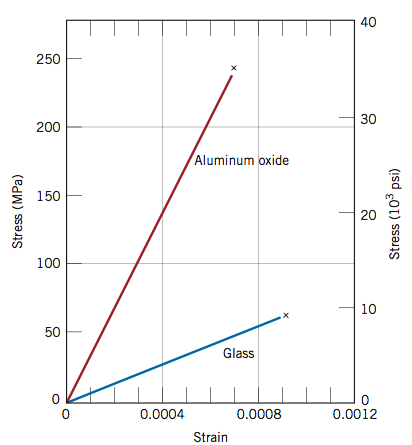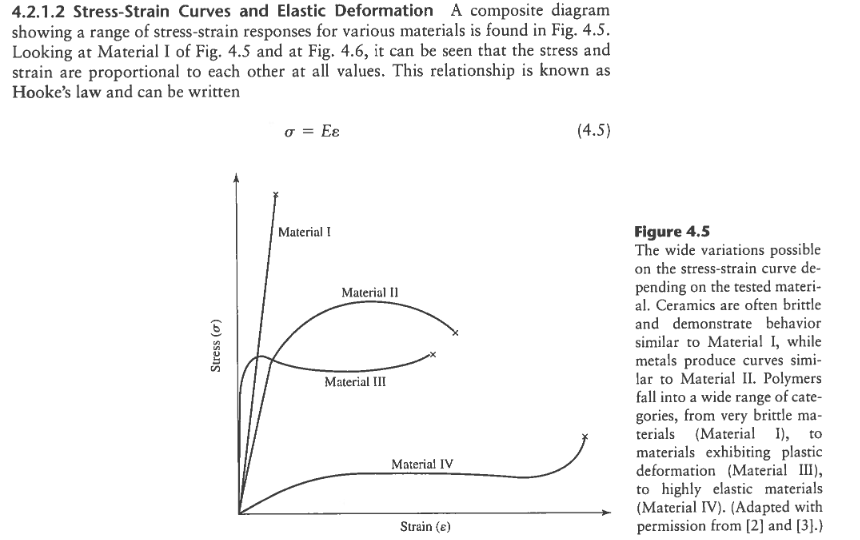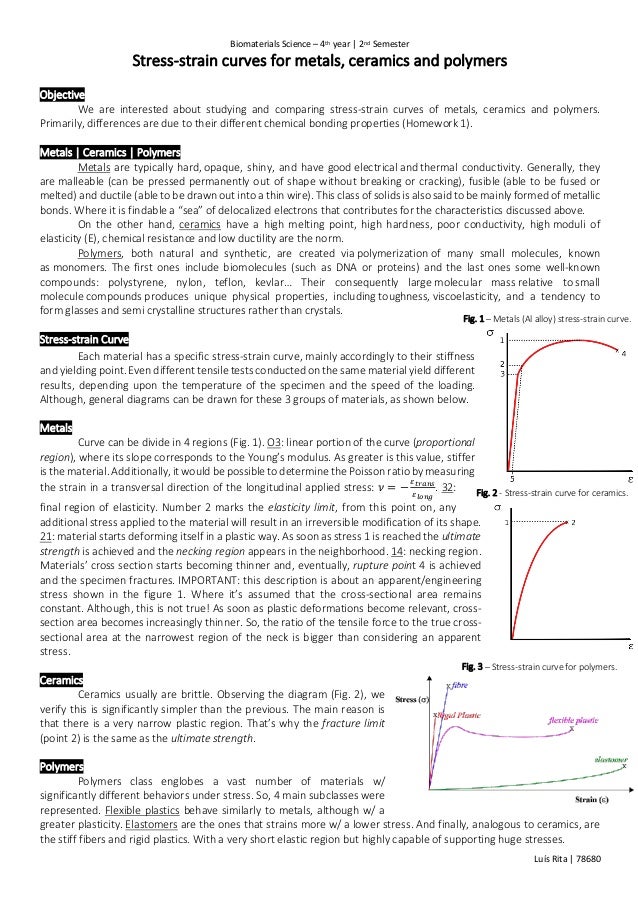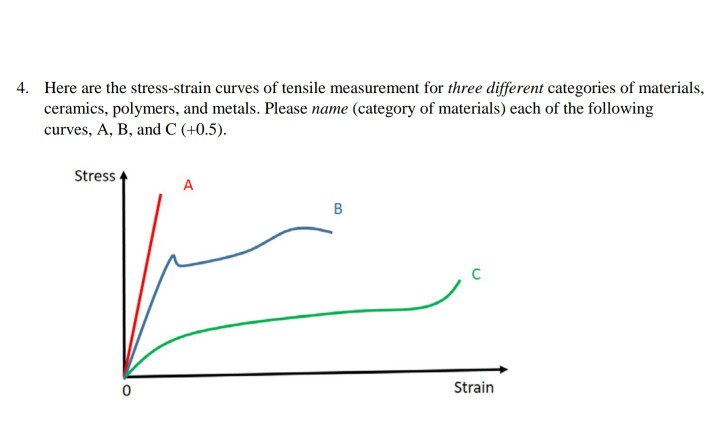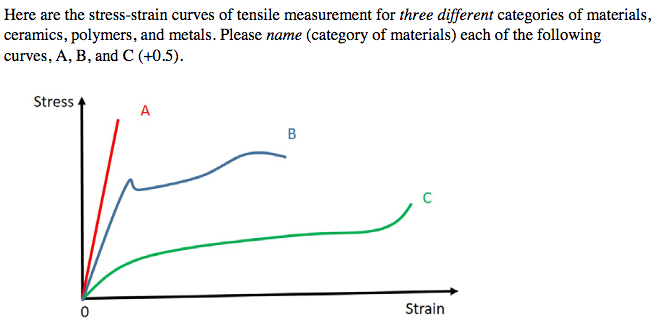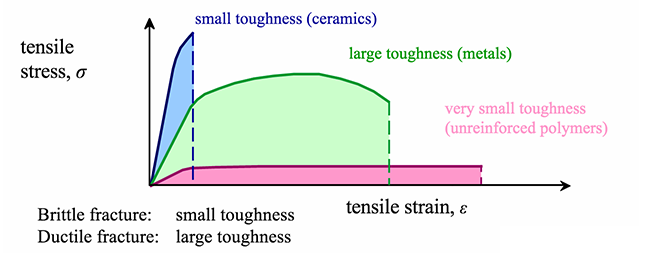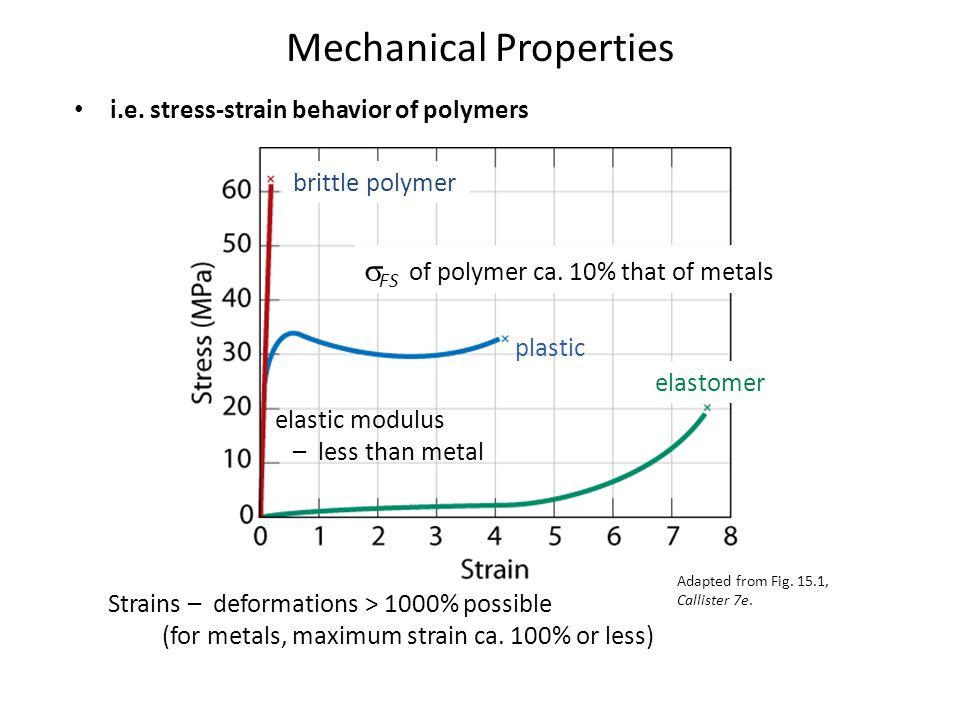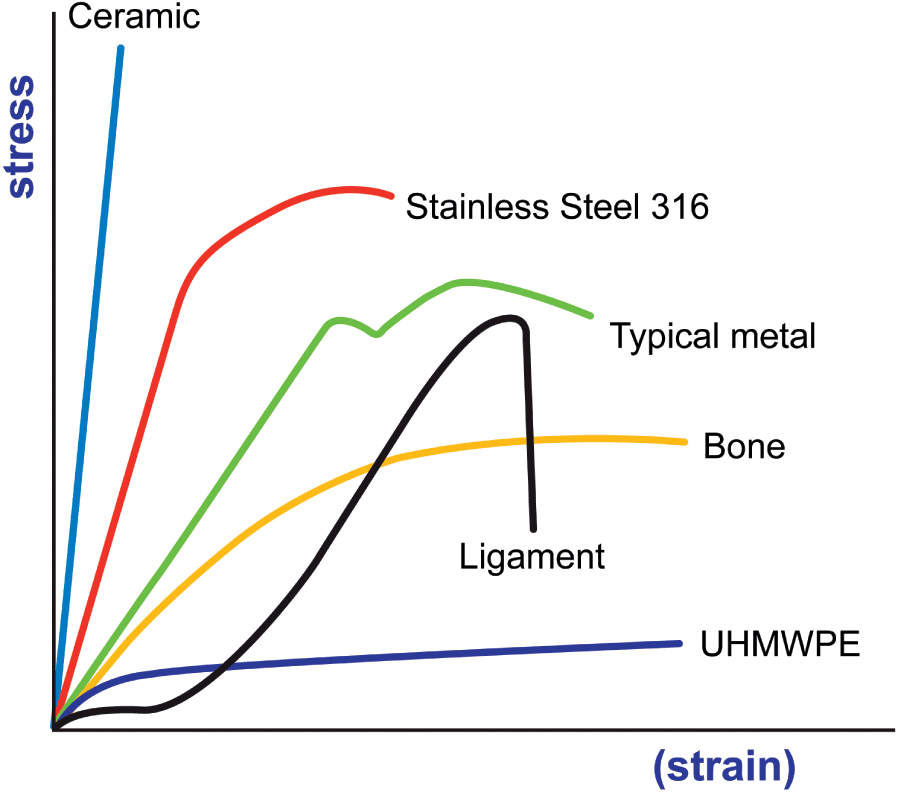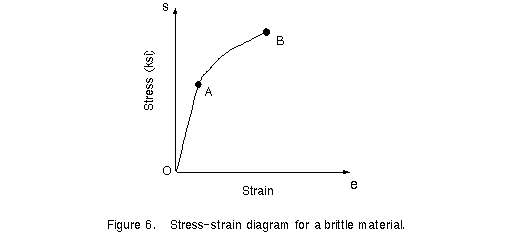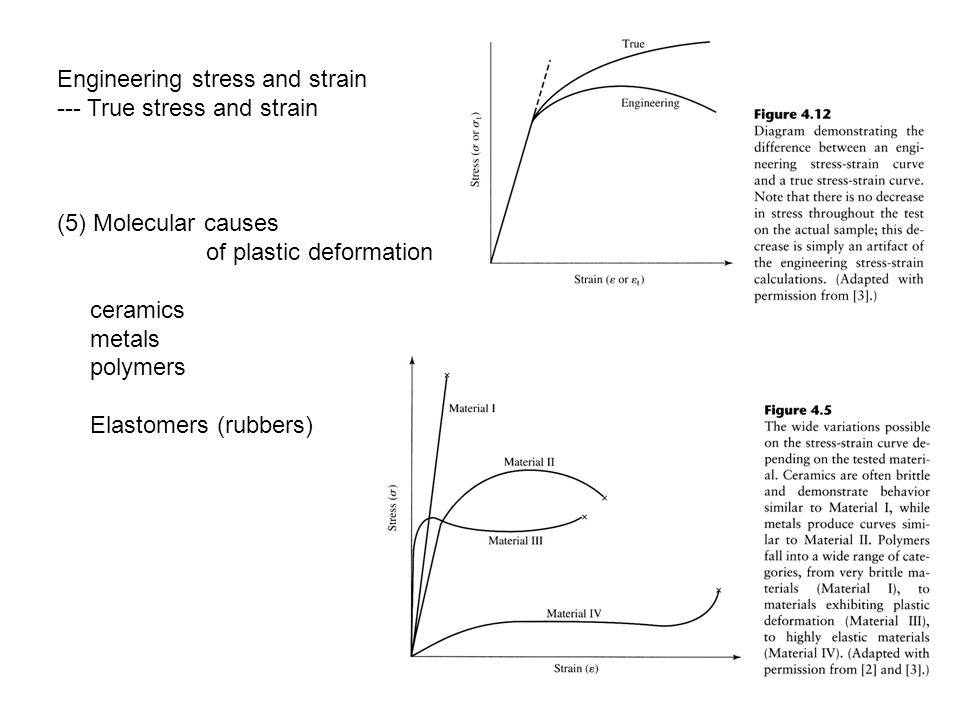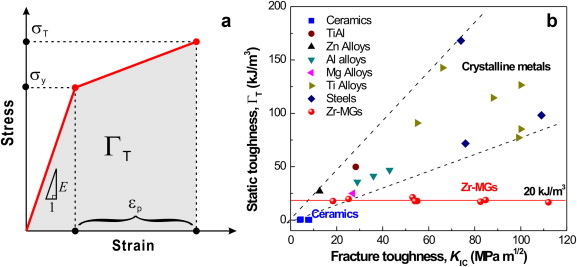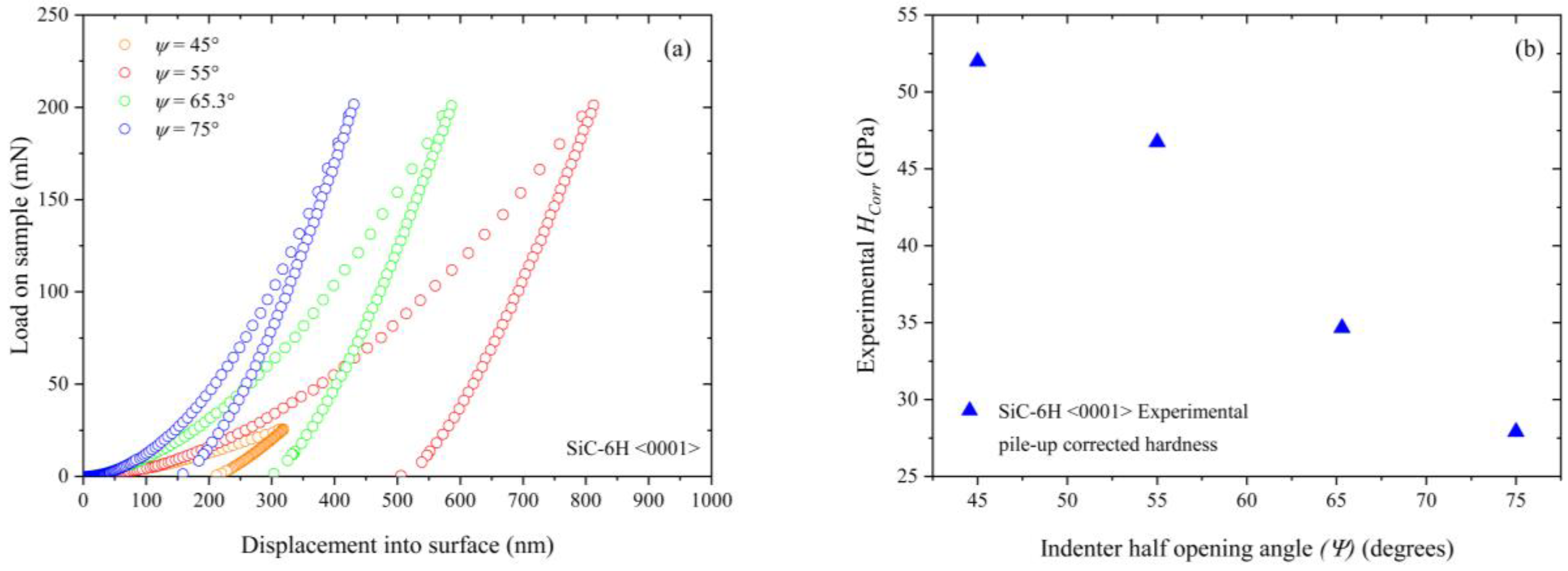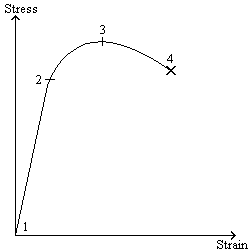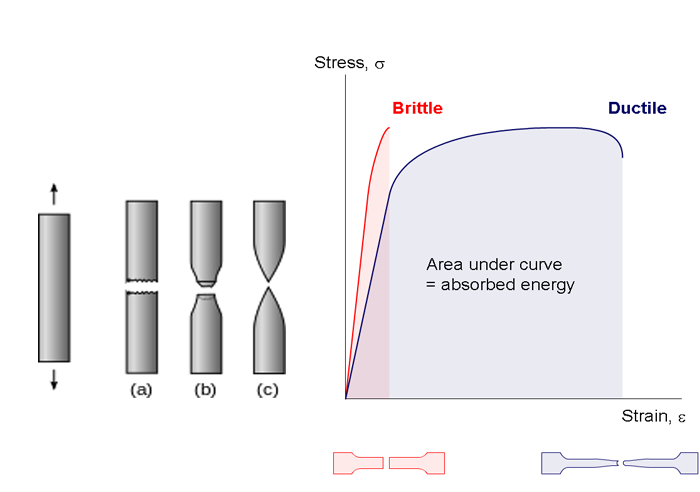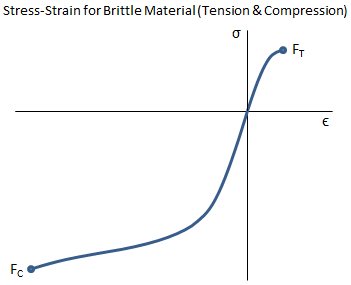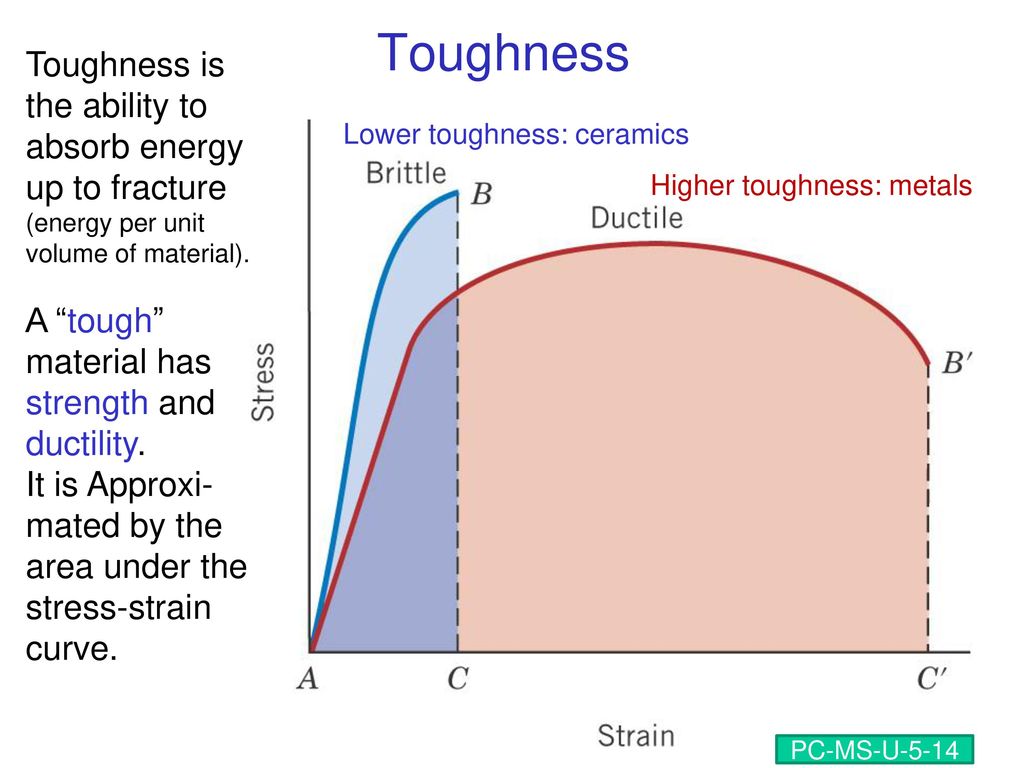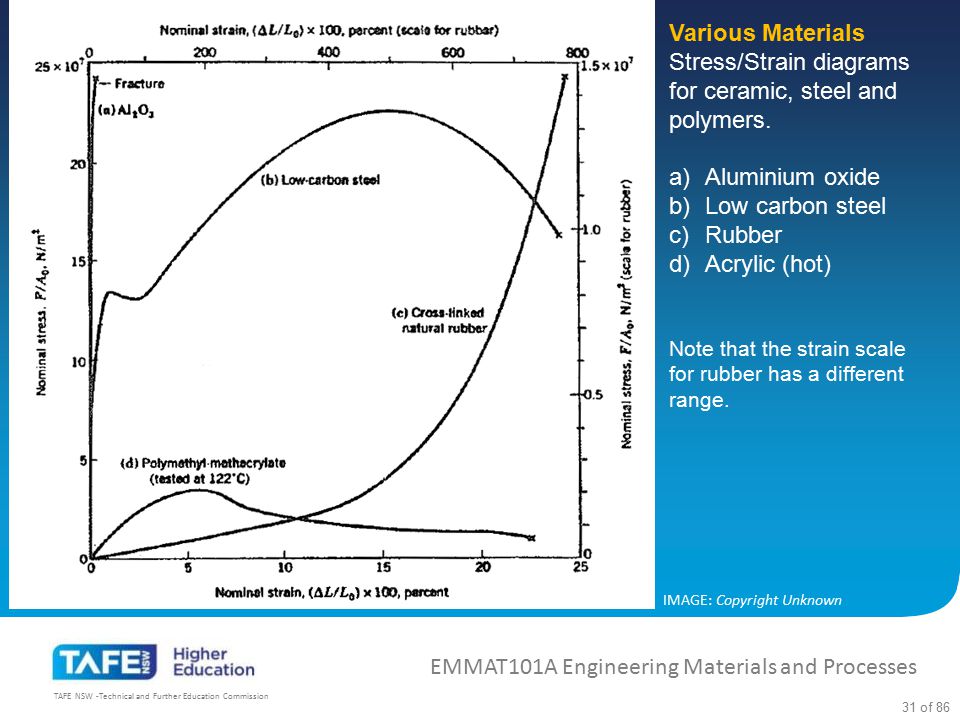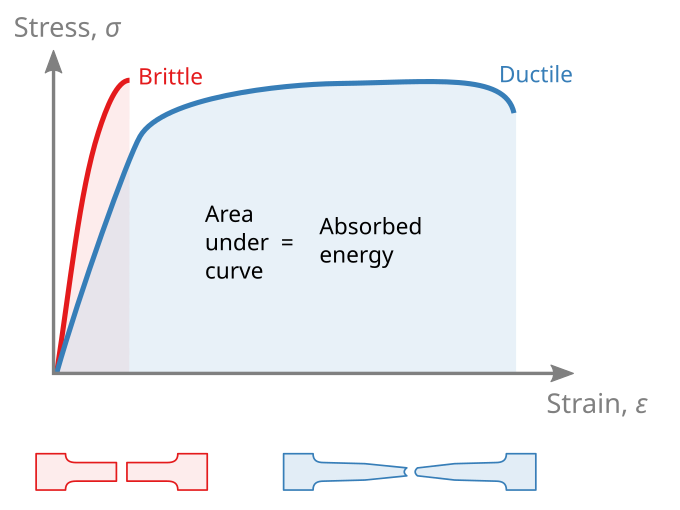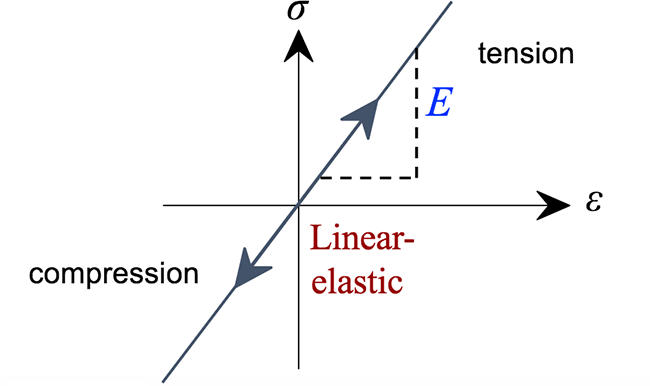Stress Strain Curve Of Ceramic Materials
The specimen however does not fail at this point.
Stress strain curve of ceramic materials. When a ductile material such as copper or aluminum is put under stress initially the resulting strain is proportional to the magnitude of the forces. In this the stress is plotted on the y axis and its corresponding strain on the x axis. We discussed this earlier. This is shown by the point e on the graph.
Another way at looking at resistance to failure for ceramic materials is to examine the energy required to drive cracks through the system. Elastomers are the ones that strains more w a lower stress. This is depicted by the straight line oa. The stress strain curve is approximated using the ramberg osgood equation which calculates the total strain elastic and plastic as a function of stress.
In materials science fracture toughness is the critical stress intensity factor of a sharp crack where propagation of the crack suddenly becomes rapid and unlimited. Stress strain curve is the plot of stress and strain of a material or metal on the graph. A highly elastic polymer may stretch over 10 times the original length before breaking while a metal might elastically stretch 10 of the original length elastically and may stretch. 1 metals al alloy stress strain curve.
The straight line implies that stress and strain share a linear or direct relationship throughout oa. The material now is said to be plastic and the deformation is of nearly permanent nature. It represents the maximum stress that a material can take before it fails. Click the resistance to fracture or area under the stress strain curve is the called the toughness.
Plane strain conditions give the lowest. After plotting the stress and its corresponding strain on the graph we get a curve and this curve is called stress strain curve or stress strain diagram. Generally a ceramic with more defects is weaker. Where σ is the value of stress e is the elastic modulus of the material s ty is the tensile yield strength of the material and n is the strain hardening exponent of the material which.
Stress strain curves for two brittle materials. And finally analogous to ceramics are the stiff fibers and rigid plastics. After this point the curve starts dropping. In engineering and materials science a stress strain curve for a material gives the relationship between stress and strain it is obtained by gradually applying load to a test coupon and measuring the deformation from which the stress and strain can be determined see tensile testing these curves reveal many of the properties of a material such as the young s modulus the yield strength.
2 stress strain curve for ceramics. While some of the stress strain curves for polymers might look similar to ones for metals polymers are mechanically different than metals or ceramics.
